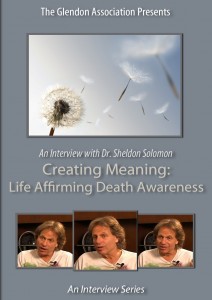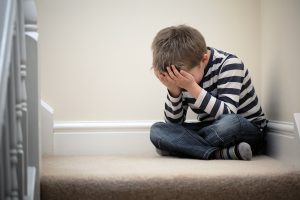Teaching in Prisons: An Exclusive Interview with Dr. Sheldon Solomon
The following transcript contains part of an exclusive interview with Dr. Lisa Firestone and Dr. Sheldon Solomon.
Sheldon Solomon talks about his experience teaching in prisons.
SS:I spent a decade in the prisons – the maximum security and medium security prison – in New York working with inmates to teach them college courses. And it was honestly, the most eye-opening experience– I was 25 when I went to Skidmore or 26, doesn’t matter. I was young and kind of all full of myself, young professor, you know, I know it all. And I get to Skidmore, which is a kind of prestigious fancy pants, you know, kind of liberal arts college. I go there in 1980 and I remember my mom, you know, she’s like, “Ooh, l ook at the parking lot, because there’s the Porsche and there’s the BMW, there’s the Mercedes.” And I’m like, “Mom, that’s the student parking lot. Let me show you where we park.” But anyway, all these privileged kids and they’re good kids. The Skidmore kids are great. Maybe we’ll talk about that another time. But it’s not a world I was familiar with and then we get this opportunity to teach at the prison and the Skidmore students at the time, great humans that they were, were never overly engaged academically. They saw their studies as an annoying intrusion on their social lives. So we get to the prison and I walk in and I’m – my first thought is, first of all, we need prisons, so I had this kind of ‘60’s granola bar, oh, we really don’t need prisons. No, that’s really bullshit, because you just need to see a couple of sociopathic child molesters / serial murderers to realize that as James Gilligan put it, we need restraint, not necessarily punishment, however. So, I’m like, OK, thank god for prisons and then I walk in and as I was saying at lunch, we had this orientation. They’re like – these people are animals. Do not really even, don’t look at them, don’t acknowledge them, you know, just go in, say some stuff and walk out.
But the classrooms, there were no guards in the classroom, so we were led to the school part of the prison and you walk in the room and honestly, what I noticed was, basically, these were generally black and Hispanic guys from the Bronx, where I was from. You know, or Brooklyn or whatever and for the most part, they were, they did some heinous stuff. But most of them started with stuff that a lot of us had done. And they just happened to get caught. And then a bad break metastasizes into really bad things. But I just remember vividly my first day in the prison where I just looked them in the eye and smiled and said hello. And was shocked by just the obvious enthusiasm and engagement that this, basic as Malcolm X put it, recognition and respect engendered on their part. And then, I’d be like, OK, I’ll just restrain myself and stick to monosyllabic utterances because these are obviously stupid people. Well, that was simply untrue. These were highly intelligent people some of whom happened to be ignorant in the sense of having rudimentary academic skills. But their enthusiasm for learning, their appreciation for the 3 hours a night where they were momentarily metaphorically transferred and transformed, you know, from a prison environment to an egalitarian intellectual playing field where they were acknowledged as worthy humans, it was just frankly, we would be so excited on the way out and I would drive with other Skidmore professors and we would be, “That was just fuckin’ amazing.” And if you were to mention a book, if you would say, “Oh, well you know. What you said is interesting. Marx said that in his economic and philosophical manuscripts of 1844.” The next week a guy would raise his hand and say, “They had that in the prison library, I read it and I’ve got a bone to pick with you.” my point is that the prisoners, their lust, and lust in the positive sense of the word, their lust for life, their lust for learning, to see the dawning recognition that they were people and as people, imbued with possibilities. I like Kierkegaard’s phrase that when you’re conscious, that’s awesome because it gives you the possibility of possibilities. I’ve always thought that was very cool. There was just nothing better.
And as you know because we spoke about it at lunch, the statistics are quite clear. An inmate that completes a college program, you know, has a 99% chance of not returning to prison. And as I also told you earlier, that was one of the sad moments in New York State when Governor George Pataki was elected, I believe in 1990 or thereabouts, he ran against Mario Cuomo and the campaign issues were capital punishment and prison education. And Pataki said, “If you elect me, I will reinstate capital punishment and there’ll be no more education in the prisons.” And so we were bounced out of that and I think that was a sad moment for Skidmore and for the inmates. But they did have a celebration last year at graduation and a lot of the former inmates who were the beneficiaries of a college education came back and it was just quite amazing to see these folks, you know, having paid their proverbial debt to society. Every one of them, by the way, was doing something that involved community service. And I just found that revealing. I take no issue with folks that are preoccupied with material gain. I think we need that also. But I did think that it was revealing that everyone of these guys was a social worker or a drug or alcohol counselor or I just help the homeless find places to live. I thought that was pretty neat.
Order a DVD of Dr. Sheldon Solomon’s full interview with PsychAlive, “Creating Meaning“
 In this DVD, Dr. Sheldon Solomon addresses a variety of topics concerning how human beings can create meaningful lives in the face of death. In a lively and candid style, Dr. Solomon discusses the development of Terror Management Theory, the ways in which people form defenses against death anxiety and the concept of life affirming death awareness, arguing that we can “accept the reality of the human condition and parlay that into bringing out the best in us. ” He also addresses the societal effects of death awareness, including the social nature of human beings, the role of education and government, and the elements that make up an ideal society. Ultimately, Dr. Solomon advocates that people treat one another humanely and with a greater emphasis on compassion.
In this DVD, Dr. Sheldon Solomon addresses a variety of topics concerning how human beings can create meaningful lives in the face of death. In a lively and candid style, Dr. Solomon discusses the development of Terror Management Theory, the ways in which people form defenses against death anxiety and the concept of life affirming death awareness, arguing that we can “accept the reality of the human condition and parlay that into bringing out the best in us. ” He also addresses the societal effects of death awareness, including the social nature of human beings, the role of education and government, and the elements that make up an ideal society. Ultimately, Dr. Solomon advocates that people treat one another humanely and with a greater emphasis on compassion.









Leave a Reply